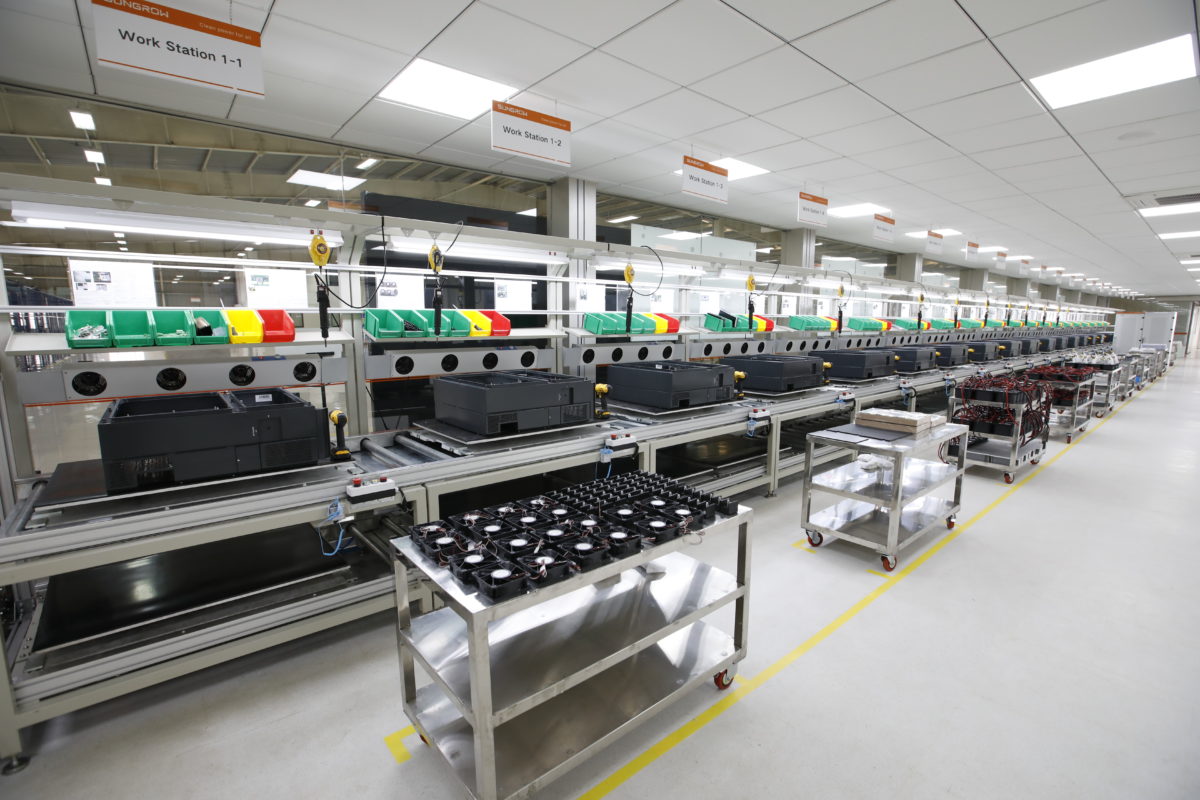The MNRE guidelines cover solar inverters having maximum DC voltage of 1000/1100V and nominal AC voltage of 415V. Inverters rated 1100V DC will be tested at 1000V.
As solar inverters are of varying sizes, ratings, varieties, etc, these are to be grouped before submitting samples to test labs. A product family can be defined by the maximum configuration of components/sub-assemblies plus a description of how the models are constructed from the maximum configuration using these component and sub-assemblies.
Out of the entire range of models intended to be covered under registration, the highest rated model shall be tested to cover the entire range of family. The lab will charge the testing cost only for the highest rated inverter model and issue test report to all such sets of lower wattage, with product label of each series model placed in the test report.
Within the family, components with different power/current ratings are allowed, provided the inverter with maximum rated component (such as EMC filters, capacitors, transformers, inductors, IGBTs/MOSFETs, etc) is tested.
All the models under an inverter family should have the same hardware architecture and firmware functionality. The firmware can have different limit settings as per the model rating in the series. Inverters having different hardware architecture and firmware functionality shall be tested separately.
Further, if the cabinet design architecture changes between various models in the family (but the internal hardware like PCB layout is the same), all the different cabinet designs are to be tested or verified for ingress protection.
Quality control order
MNRE had issued, in year 2017, the Solar Photovoltaics Systems, Devices and Components Goods (Requirements for Compulsory Registration) Order 2017 for quality control in Indian solar power projects. The order covers PV modules, inverters and battery storage. It prohibits sales, import or distribution of goods that do not conform to specified Indian standards—IS 16221 (Part 2): 2015 (Safety of Power Converters for use in Solar Photovoltaic Power Systems) and IS 16169:2014 (Test Procedure of Islanding Prevention Measures for Utility-Interconnected Photovoltaic Inverters) in the case of PV inverters. Manufacturers have to apply for registration with Bureau of Indian Standards (BIS), New Delhi after getting their inverters tested from BIS recognised test labs.
This content is protected by copyright and may not be reused. If you want to cooperate with us and would like to reuse some of our content, please contact: editors@pv-magazine.com.









1 comment
By submitting this form you agree to pv magazine using your data for the purposes of publishing your comment.
Your personal data will only be disclosed or otherwise transmitted to third parties for the purposes of spam filtering or if this is necessary for technical maintenance of the website. Any other transfer to third parties will not take place unless this is justified on the basis of applicable data protection regulations or if pv magazine is legally obliged to do so.
You may revoke this consent at any time with effect for the future, in which case your personal data will be deleted immediately. Otherwise, your data will be deleted if pv magazine has processed your request or the purpose of data storage is fulfilled.
Further information on data privacy can be found in our Data Protection Policy.